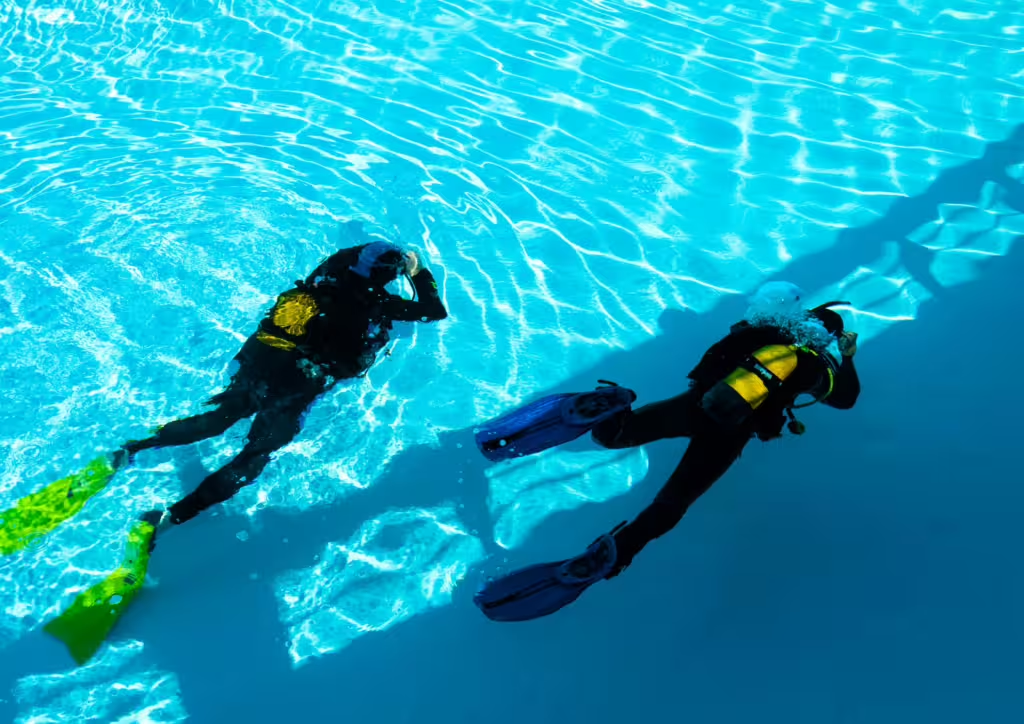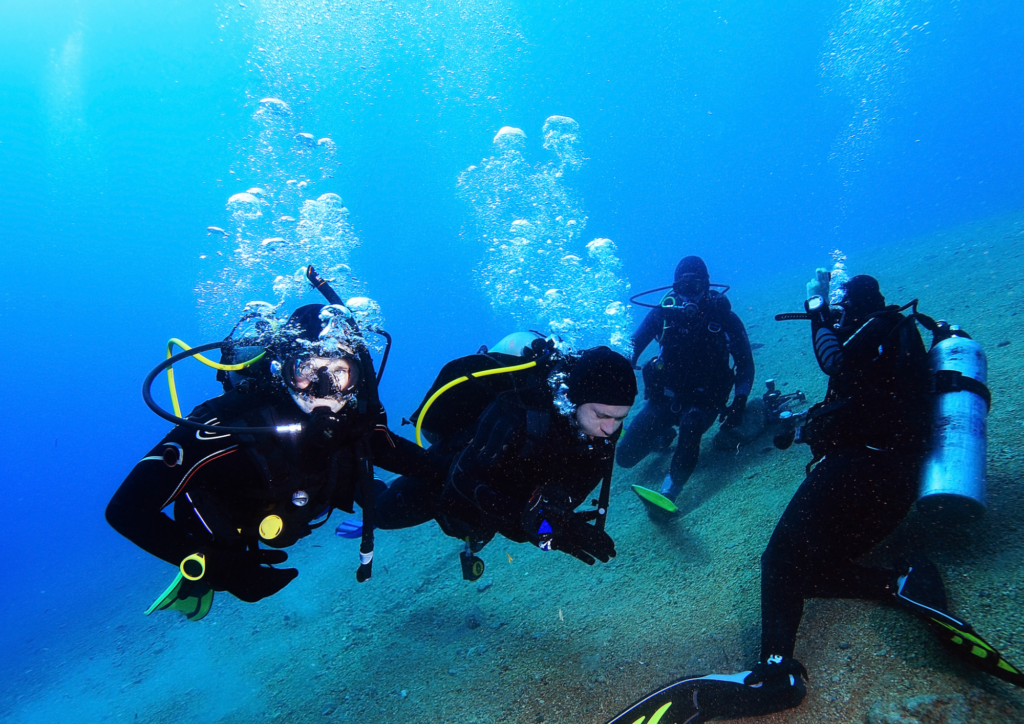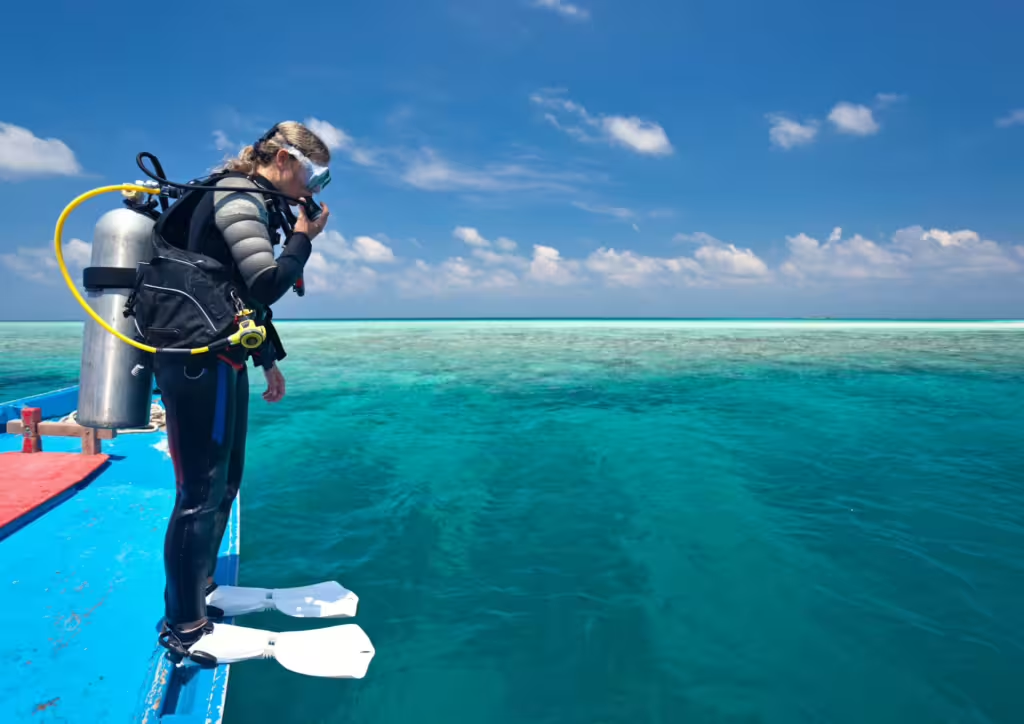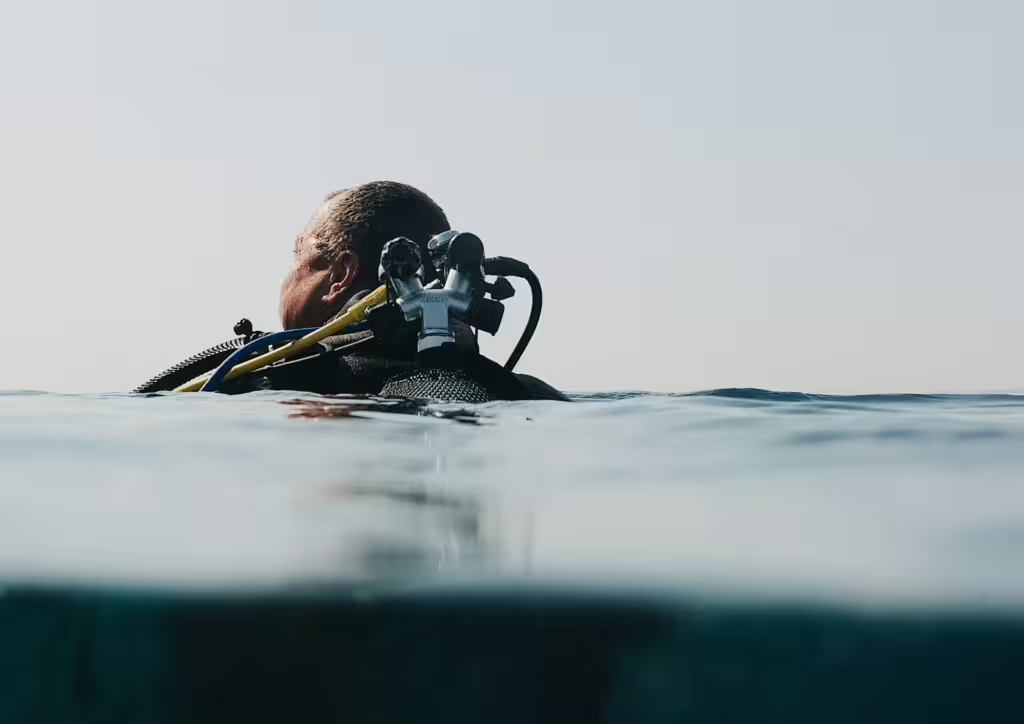SSI Scuba Course in Bali is the best way to begin your diving journey in one of the world’s most stunning underwater destinations. Many divers compare SSI with PADI, but an SSI Scuba Course in Bali often offers more flexibility, digital learning, and affordable options. Both SSI and PADI are globally recognized, yet choosing an SSI Scuba Course in Bali means enjoying a tailored approach while exploring Bali’s vibrant reefs. Whether you’re a beginner or advancing your skills, safety, equipment use, and underwater techniques are all included.
Understanding SSI and PADI: A Quick Overview
Scuba Schools International (SSI) and the Professional Association of Diving Instructors (PADI) are the two most recognized scuba diving certification agencies worldwide. PADI, founded in 1970, built a strong global network with courses that emphasize safety, diver education, and environmental care. SSI, also founded in 1970, takes a more flexible approach, allowing instructors to adapt their teaching methods to suit each student’s needs.
For travelers, choosing an SSI Scuba Course in Bali offers a personalized learning experience that blends education with enjoyment. Both SSI and PADI certifications are globally respected, but an SSI Scuba Course in Bali highlights local diving environments, enhancing the connection to Bali’s vibrant waters.
When comparing options, an SSI Scuba Course in Bali often stands out for its flexibility and student-focused approach, while PADI provides a consistent global standard. Deciding on an SSI Scuba Course in Bali comes down to your learning style, budget, and diving goals. No matter which you choose, an SSI Scuba Course in Bali guarantees a gateway to exploring Bali’s incredible underwater world.
The Pros and Cons of SSI Scuba Courses

Choosing an SSI Scuba Course in Bali offers many benefits for both beginners and experienced divers. The biggest advantage is flexibility—students can learn at their own pace with smaller instructor-to-student ratios, ensuring more personalized attention. This approach not only improves skill development and safety but also creates a more enjoyable experience. An SSI Scuba Course in Bali also emphasizes marine conservation, appealing to eco-conscious travelers who want their training to support ocean protection.
On the flip side, some divers may find the slower, personalized style less efficient if they prefer a faster pace. While an SSI Scuba Course in Bali is globally recognized, PADI still holds a broader international presence, which could matter for those planning to dive in multiple countries. Still, for many travelers, an SSI Scuba Course in Bali strikes the perfect balance of flexibility, personal attention, and environmental responsibility—making it a rewarding choice for anyone eager to explore Bali’s underwater world.
The Pros and Cons of PADI Scuba Courses
PADI scuba courses are known for their worldwide network of dive shops, making it easy for divers to continue training or book dives while traveling. Their reputation as the “gold standard” of scuba certification gives students confidence and ensures recognition across the globe. With a structured step-by-step system, PADI is especially appealing to beginners who want clear guidance and a sense of progress.
However, PADI’s rigid course structure can feel less flexible compared to alternatives. Costs are often higher too, which is why many travelers consider an SSI Scuba Course in Bali instead. An SSI Scuba Course in Bali offers more personalized training, smaller class ratios, and a focus on flexibility. For divers who value a student-centered approach, an SSI Scuba Course in Bali may be the better fit. By weighing the pros and cons of both, you can decide whether PADI or an SSI Scuba Course in Bali best matches your diving goals.
Cost Comparison: SSI vs PADI Courses in Bali

When considering a scuba certification in Bali, one of the most crucial factors for many travelers is the costs associated with the different courses offered by SSI (Scuba Schools International) and PADI (Professional Association of Diving Instructors). On average, SSI courses may range from $350 to $500, while PADI courses tend to be priced slightly higher, typically ranging from $400 to $600. Both organizations often have additional fees for equipment rentals, which can add anywhere from $50 to $100 to your total cost, depending on the duration of the course and the specific dive shop policies.
Additionally, travelers should keep an eye out for special package deals offered by some dive schools, which might include accommodation, meals, or fun dives, as these can significantly offset costs while enhancing the overall experience. It’s essential to delve into what these prices include. For instance, both SSI and PADI courses typically cover classroom training, confined water sessions, and open water dives, but the specific inclusions may vary.
Extra costs might arise from certification card fees or insurance for diving in certain locations. As a general guideline, those on a tight budget might favor SSI, while those seeking a globally recognized certification might lean toward PADI despite the potentially higher costs. Being informed about the financial aspect will ultimately help you better plan and prepare for your underwater adventure in beautiful Bali.
Which Certification Suits Your Travel Style?
When choosing between SSI and PADI scuba certification courses in Bali, it’s essential to consider what type of traveler you are. For casual vacationers who may only dive occasionally, the SSI course might be more appealing due to its emphasis on flexibility and accessibility. Many SSI courses allow students to complete theory lessons online before arriving in Bali, allowing for a more relaxed pace to fit into a vacation itinerary.
Conversely, PADI is often viewed as the more globally recognized certification, which can be attractive for those who plan to dive frequently around the world. Its structured approach may better suit dedicated divers looking for a comprehensive and universally acknowledged training experience. Furthermore, dedicated diving enthusiasts who envision diving as a central part of their travels might lean toward PADI because of its extensive network and variety of advanced courses.
However, SSI’s focus on environmental consciousness and personalized dive experiences can resonate with travelers who prioritize eco-friendly practices. Ultimately, the best choice depends on how you envision integrating scuba diving into your travel lifestyle. Reflecting on your dive goals and preferences will guide you in selecting the certification that suits your adventurous spirit in Bali.
Real Dive Experiences: Testimonials and Reviews

The choice between SSI and PADI certification courses often boils down to personal experiences shared by divers who have immersed themselves in both programs. Many divers who completed the SSI Scuba Course in Bali praise the program for its focus on environmental awareness and conservation practices, which resonate well with individuals who place a high value on sustainability in diving. Reviewers frequently highlight the quality of instruction, with many noting that their instructors took time to ensure every diver was comfortable and confident in the water before progressing.
This positive reinforcement can foster a supportive learning environment, making it a favorable option for first-time divers or those with apprehensions about diving. On the other hand, testimonials from those who pursued PADI courses in Bali often spotlight the vast global recognition of the certification, which can be advantageous for divers planning to explore internationally.
Many former students emphasize the structured approach to learning, which helps create a clear path for progression within the diving community. Reviews suggest that while PADI may be more rigid in structure compared to SSI’s flexibility, the outcome is often a deep sense of accomplishment and readiness to tackle more advanced dives. Whether SSI or PADI resonates more with you, real divers’ testimonies can significantly influence your choice, providing a practical perspective on the certifications available in Bali.
Making the Right Choice: Your Scuba Journey Awaits in Bali
In conclusion, the decision between SSI and PADI scuba certification courses in Bali ultimately hinges on your personal preferences and specific diving goals. Both organizations offer robust training programs that ensure safety, skill development, and environmental awareness. Whether you’re a beginner eager to explore the underwater world or an advanced diver looking to expand your qualifications, each certification path has unique strengths.
SSI focuses on a more personalized approach with a strong emphasis on local diving conditions, while PADI boasts a global recognition and a vast network of dive centers worldwide. As you weigh your options, consider factors such as the dive schools available in Bali, the type of diving experiences you wish to pursue, and how comfortable you feel with the teaching style of each organization.
Take the time to research local dive shops and inquire about their courses, as well as customer experiences. Ultimately, whichever path you choose, you’re bound to have an unforgettable adventure beneath the waves, enhancing not only your diving skills but also your appreciation for the enchanting marine life of Bali.

